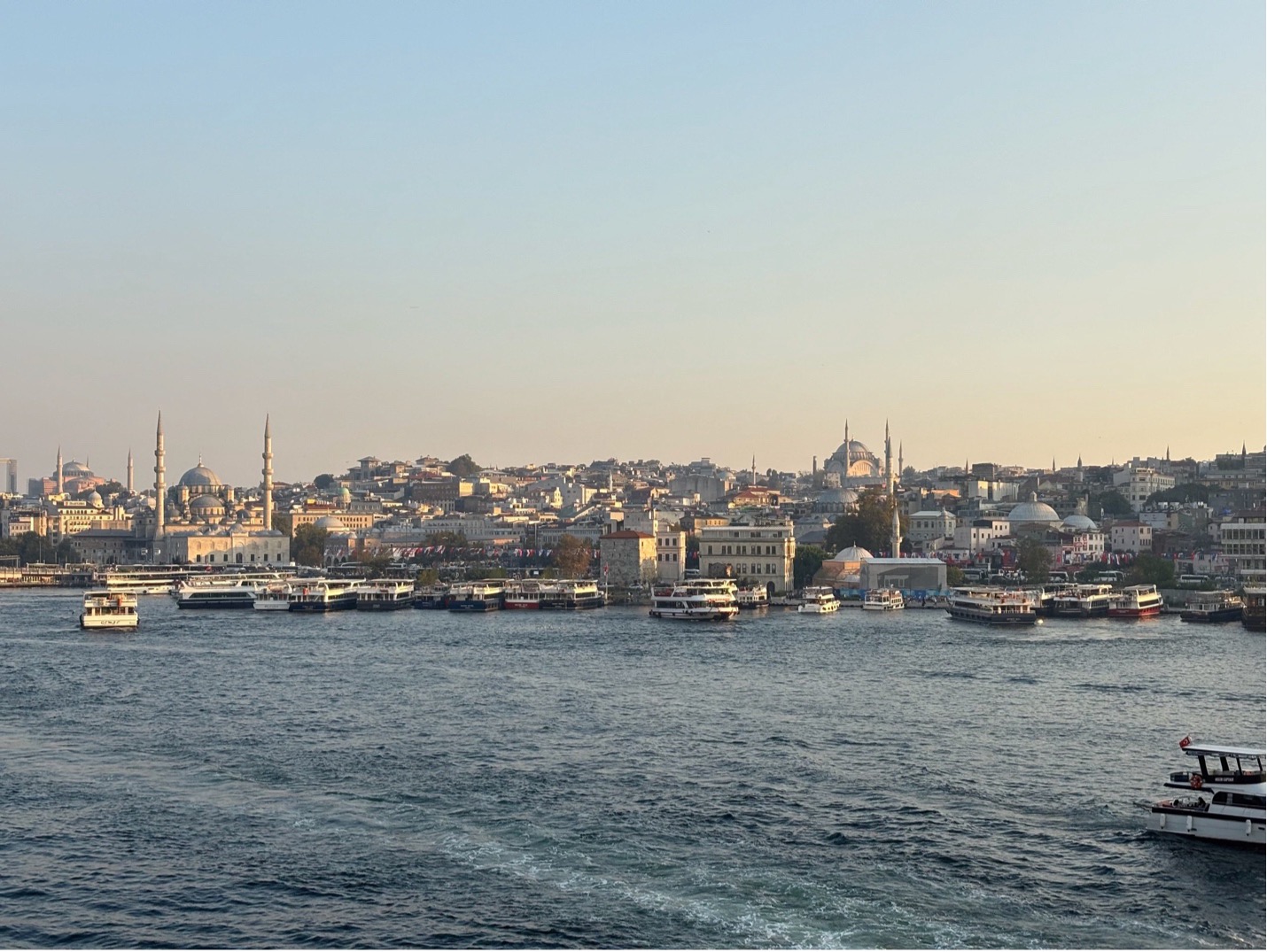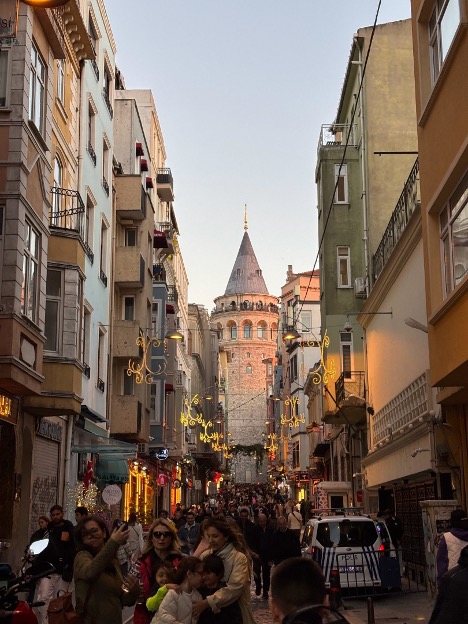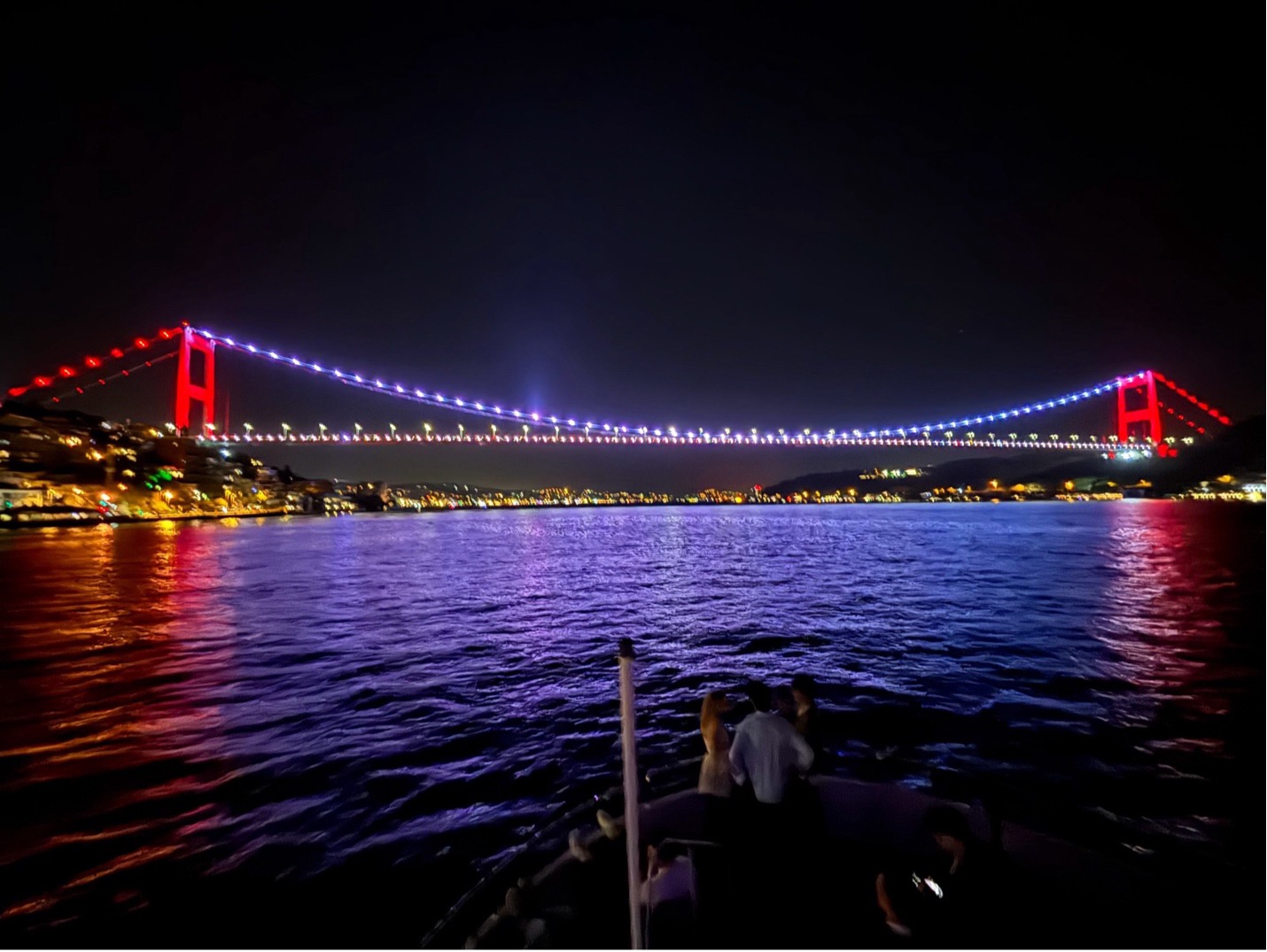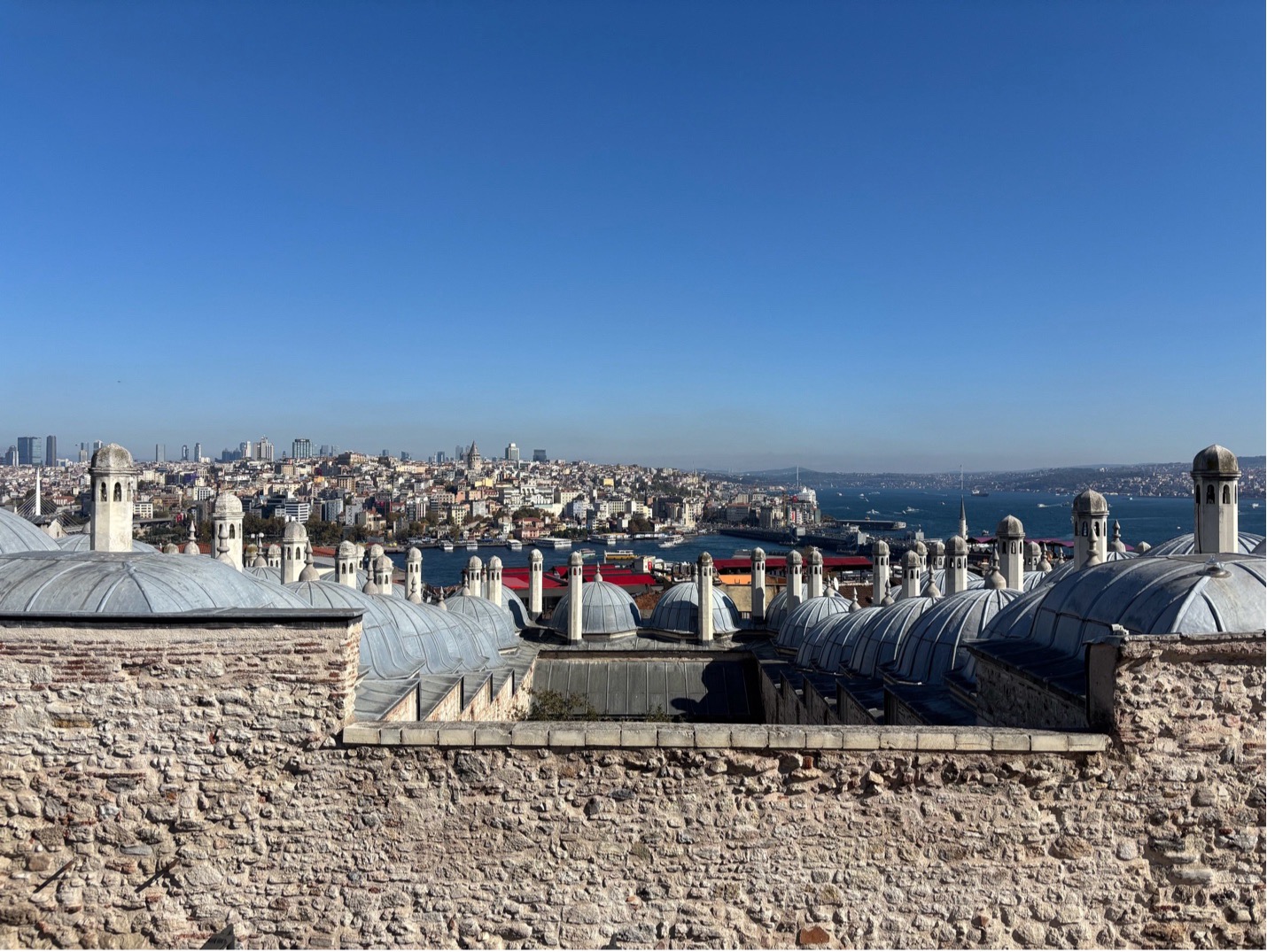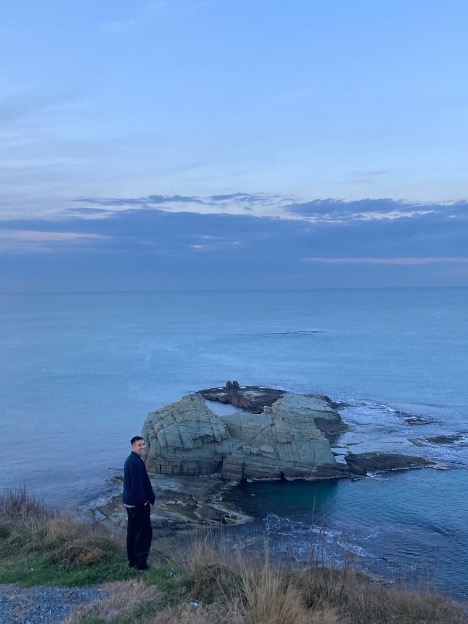"Ko├¦ University is the best university in Turkey!": the story of Vagab Abdulgalimov, a Marketing and Market Analytics student.
What is it like to study at one of the most prestigious universities in Turkey? Vagab Abdulgalimov, a fourth-year student of the "Marketing and Market Analytics" program, shares his experience of studying and living at Ko├¦ University. In his story, he provides a detailed account of the entire academic mobility process. Useful tips and personal impressionsŌĆöeverything you need to know if you are considering an exchange program to this university.
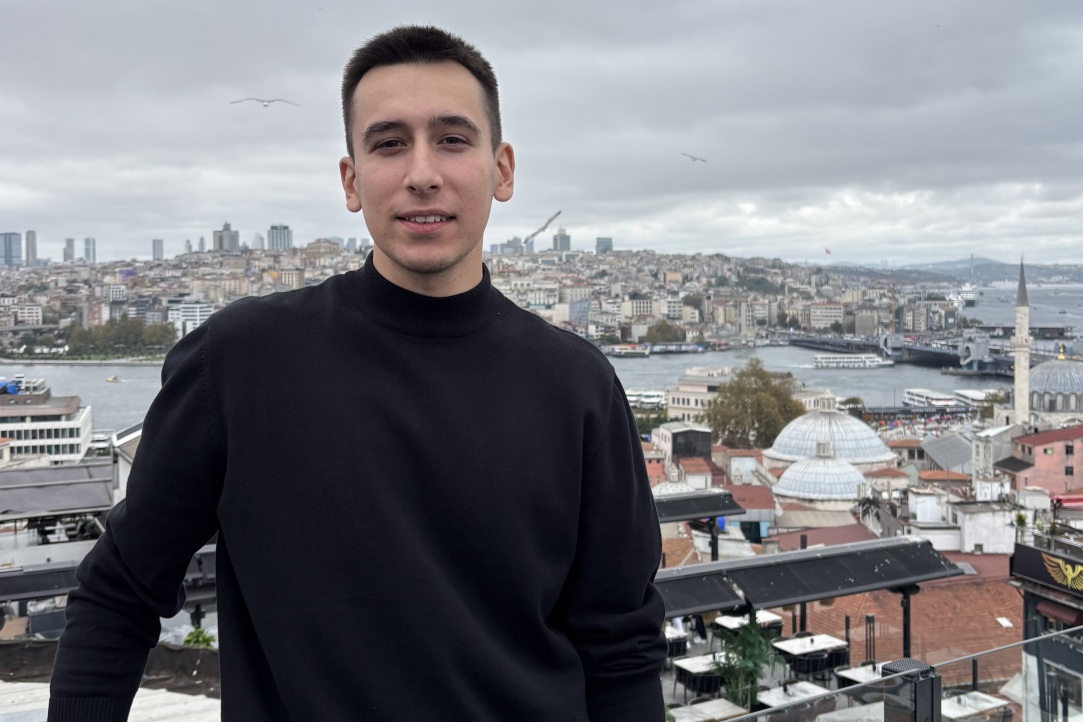
"Koç University is the best university in Turkey!" — This is exactly what you might hear from many people on the streets of Istanbul after saying, "I study at Koç."
And indeed, the university's campus, located in a picturesque area in the northern part of Istanbul’s European side, is equipped with everything necessary for studying. Many professors hold PhD degrees from the world's top universities, and Koç University graduates are consistently in high demand in the Turkish job market.
Accommodation.
I was lucky and my application for dormitory accommodation was accepted (I submitted my application a minute and a half after the form opened). The hostel where the exchange students were placed was 10 minutes away from the main campus of the university, and there were 24-hour shuttles between them. This made travelling between the hostel and the university as comfortable as possible. Another thing was the way to the city: in order to get to the centre, you had to take a bus for about half an hour, and then the metro for about the same amount of time. And in the first weeks it might have seemed that living in a dorm was not the best option: every day or evening we went out into the city and tried to use our time in Istanbul as productively as possible. But, as time went on, it became clear that it was much more difficult to commute from the city centre to the university every weekday, and the chosen accommodation option suited me better than other alternatives. Exchange students were placed in rooms for three people with beds under the ceiling, large desks and a few cupboards. There was a micro-kitchen with a kettle, grill and microwave on the floor of the hostel. As for a full kitchen, it was located on the -1 floor, next to the common lounge area (where you can play board games, watch TV or order something from the cafeteria). In addition to this, study rooms, a gym and a 25 m swimming pool can be found in the dormitory buildings of the west campus. On that note, we can move on to a more in-depth look at a topic such as sport.
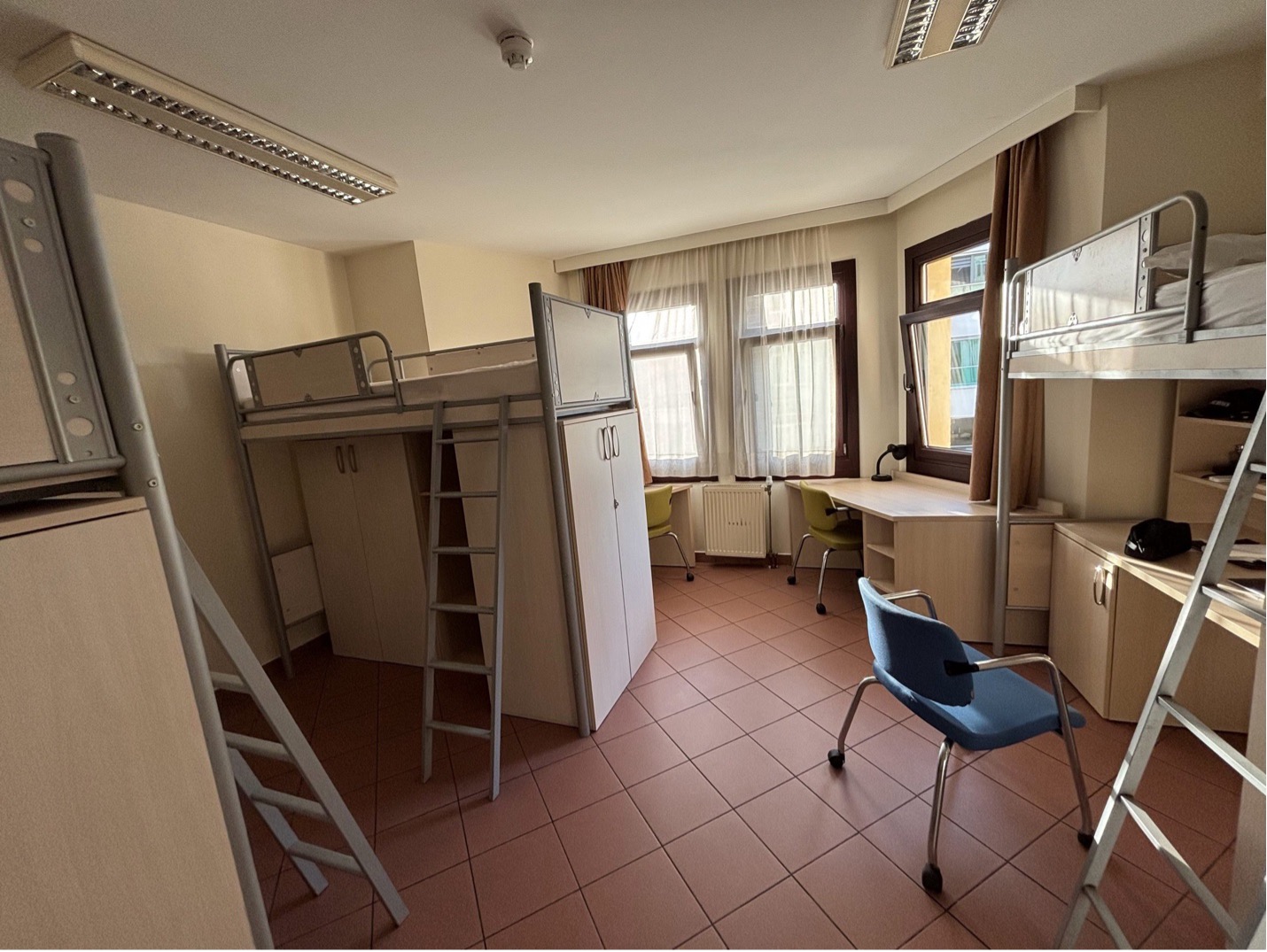
Sports
In addition to the aforementioned gym and indoor pool in the dormitory, the main campus has a host of sports facilities: an outdoor summer swimming pool, an indoor ice rink, a full-size football/American football pitch, weightlifting areas and a large sports centre building. It houses volleyball, basketball and badminton courts, dance rooms, a gym, table tennis tables and a climbing wall. Having all this literally within a three-minute walk from the place of study, many students are actively involved in sports within the walls of the university and represent its national teams
Study process
As far as studies are concerned, at the beginning of the semester, the subject selection campaign opens and depending on how successful exchange students are in applying for the subjects they are interested in, their further study will depend on their further studies. If a discipline didn't suit/didn't like it, it could be abandoned before the beginning of December. I found the pairs themselves quite interesting: most of the university lecturers had a very good level of English, which made listening to the lectures enjoyable.
Payment options
Another important topic for someone from Russia is payment options. I took money in cash in dollars with me and got a Gazprombank card with the Chinese payment system UnionPay (According to the bank's claims it was supposed to work in most places in Turkey, but in the first two weeks I managed to pay with it only once. As a result, this card was finally rendered useless after sanctions were imposed on GPB at the end of 2024). In addition, I opened an account in the Letim application (this is a Russian service that allows you to create a virtual card with a Turkish payment system). I mainly used this application, paying for everything by QR code and withdrawing cash from ATMs of the partner banks of this project. Letim also has an option to create a physical card, but if you plan to live in a hostel - deal with this issue even before leaving Russia, as in my case after four applications for a card I gave up (Letim simply did not understand where to deliver it). Due to this and the rare situations when I don't have cash on me and can't pay with a qr code, I decided to apply for a Turkish card. In any case you need a Student Residence Permit - a study residence permit - to apply for the card. Unfortunately, opening a full-fledged bank account is impossible for students who left for just a semester - banks require a residence permit for at least one year. Therefore, the choice was the payment platform ‘papara’, where it is possible to issue both a virtual card (it is done literally in a couple of clicks) and a physical card with home delivery. It can be replenished from the account (3.9% commission) or in cash at AKBANK ATMs (no commission).
Favourite places
Lastly, I would like to mention some more places that I would recommend visiting as part of a trip to Istanbul. The list of beautiful places in this city can be very long, but here are my favourites:
